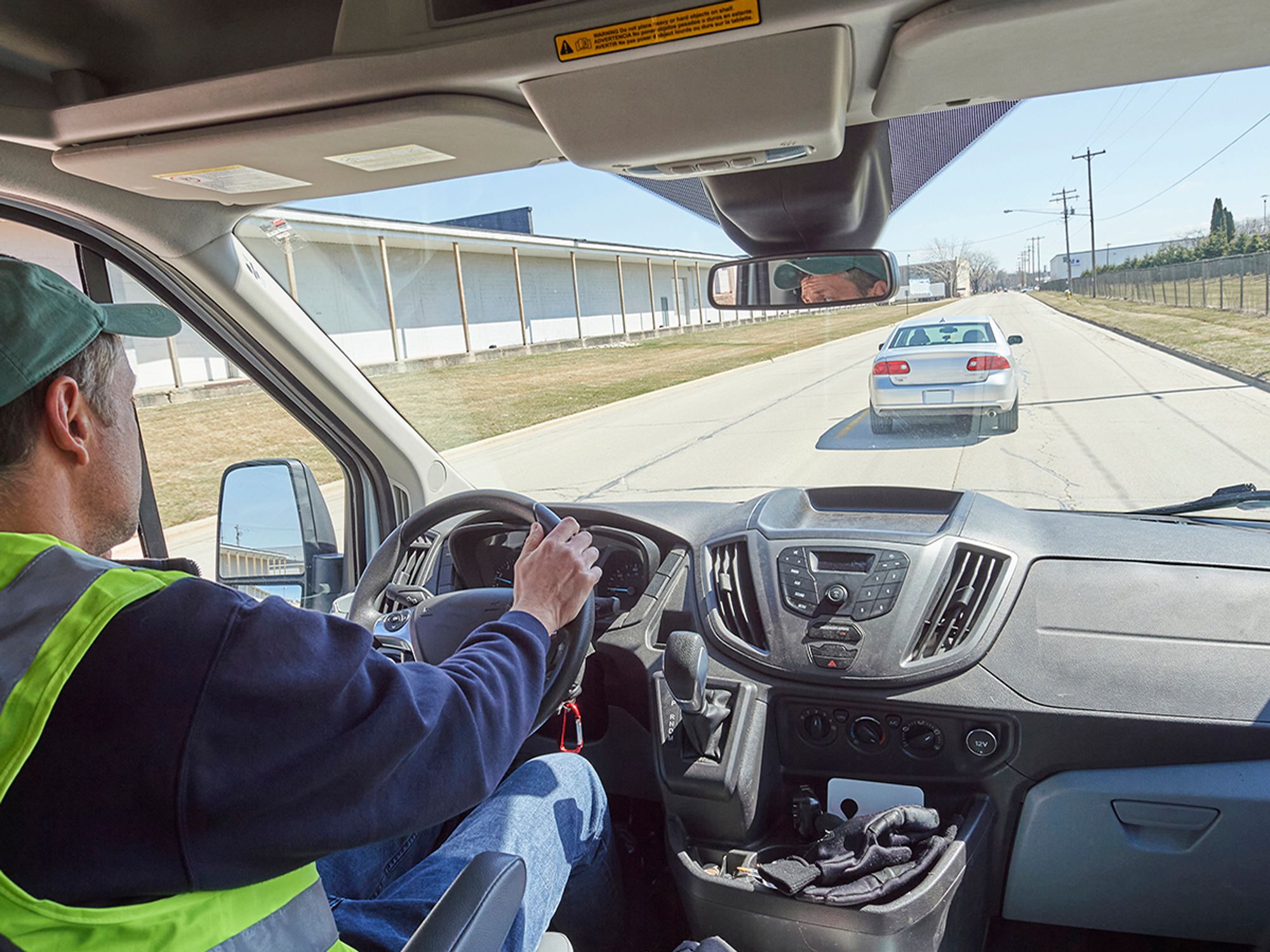Using a company vehicle

- If a vehicle is difficult to operate or necessitates taking an alternate route, a commute may be regarded as paid working time.
- The issue of contacting employees includes obtaining assignments or instructions, as well as reporting progress on a job.
The U.S. Department of Labor (DOL) has clarified that driving a company vehicle does not automatically obligate employers to pay for a commute to work. However, the commute might be paid working time if the vehicle is more difficult to operate than a normal vehicle (such as a cement truck) or if the vehicle requires taking an alternate route (e.g., because of weight limits on a bridge). In most cases, driving a common car or truck would not create a duty to pay for commute time.
In some industries, employers use vans or trucks for employees who perform service work at a customer’s home or business establishment. The vehicle allows the employee to transport needed tools or equipment to various worksites during the day. The employer may let employees drive the vehicle between home and work voluntarily.
Current enforcement policy is that employees who take a company vehicle home for their own convenience (even where the employee must bring that vehicle to the job site) are still engaged in an unpaid commute during the drive to and from work.
In certain situations, an employee is responsible for a vehicle and its equipment and for having it at the worksite at the proper time. The employer may permit the employee to drive the vehicle to and from home. In cases where permission is granted for the employee’s own convenience and travel is within normal commuting distance of employees in the area, time spent driving is not hours worked.
Where the vehicle is also used in connection with emergency calls outside of normal working hours, a determination must be made whether the use of the vehicle is for the convenience of the employee or primarily for the benefit of the employer. The frequency of emergency calls may indicate for whose convenience or benefit the vehicle is being used.
Contacting employees
Another issue is whether the employer must pay for a commute if the company contacts the employee (such as calling the employee’s cell phone) and informs the employee to report to an alternate location. A revision to Fair Labor Standards Act (FLSA) regulations was published April 5, 2011, to address this issue. The new provision at 785.9 reads:
“The use of an employer’s vehicle for travel by an employee and activities that are incidental to the use of such vehicle for commuting are not considered “principal” activities when meeting the following conditions: The use of the employer’s vehicle for travel is within the normal commuting area for the employer’s business or establishment and the use of the employer’s vehicle is subject to an agreement on the part of the employer and the employee or the representative of such employee.”
According to the preamble, this provision covers activities “such as communication between the employee and employer to obtain assignments or instructions, or to report work progress or completion.” The agency declined to provide further examples but stated that it may provide guidance at a later date to address issues such as commuting distance, costs, incidental activities, and the nature of the “agreement.”
For example, an employee may start a workday by calling the employer’s dispatcher from home, receiving work assignments, and traveling directly from home to the first worksite rather than traveling first to the employer’s establishment. At the end of the day, the employee may be required to call the dispatcher to advise that the last service call has been completed and the employee is leaving for home, where the employee parks and locks the vehicle. During this call to the dispatcher, the employee may or may not receive assignments for the next day.
Where the following circumstances exist, time spent traveling between the employee’s home and the first worksite, or between the last worksite and the employee’s home, need not be compensated:
- Driving the employer’s vehicle between home and worksites is strictly voluntary and not a condition of employment,
- The vehicle is the type of vehicle normally used for commuting,
- The employee incurs no costs for driving the employer’s vehicle or parking it at the employee’s home or elsewhere, and
- The worksites are within the normal commuting area of the establishment.
